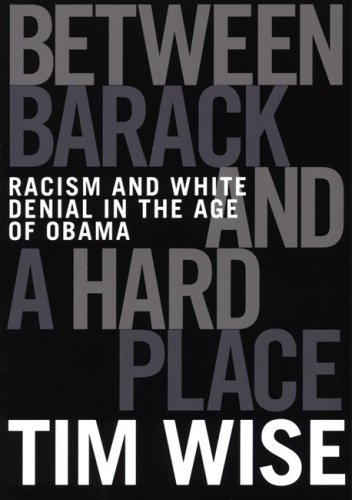
Recently in Stereotype Threat Category


Author Tim Wise does an excellent job describing the state of racism in America (both before the age of Obama and during his 2008 presidential campaign). Wise's book is broken down into two main parts, or essays as he describes it. The first is an overview of racism and discrimination in America, citing both explicit and subtle forms of racism within the realms of employment and income, housing, education, criminal justice and law, health care, and even going into great detail of the inequality demonstrated during hurricane Katrina in 2006 and the 2008 presidential campaign. This portion of the book was mainly aimed at getting across the point that racism in America is still going strong, despite the fact that statistics show that most white Americans believe Obama's election as our president signals the end of racism in our country. Wise argues that although the election of a black man to our highest ranking position is a big step in the right direction, it does not mean that white people view black people on the same level they may see the president (he uses the analogy of Bill Cosby and the Cosby Show in terms of how white people view him differently because he does not fit the stereotype-consistent role of the "black man in America". Wise also spends a good portion of this part of the book criticizing Obama for his failure to address racism in a more direct fashion, stating that Obama has often side-stepped the issue of race in America and what needs to be done to promote more equality within the realms I mentioned above. My question regarding the first part of the book is: Is it really Obama's task to focus more of this effort on racism in America because he is our first black president? Because of the fact that he is our first black president, does it just come with the territory, whereas presidents before him were not "expected" to tackle this issue because they were old white men?
The second essay of the book focuses on what needs to be done to help alleviate modern racism (or racism 2.0, as Wise refers to it). In particular, Wise focuses on what white America needs to do in order to help promote equality in our country. He mentions five main goals for white America: 1) Take personal responsibility addressing racism and white privilege. 2) Listen to black people regarding racism. 3) Stop the denial of our disturbing history dealing with race. 4) Connect with anti-racist white culture to help promote understanding. 5) Speak up! - When you see racism, no matter how subtle, take action and make a difference.
Overall, I thought this book was a well organized argument for how racism is still a very big issue in our country and it can be seen where ever we go. Wise definitely did an excellent job getting the point across about how Obama's election to president does not mean racism is ending, it is simply not what it used to be....racism has evolved. Wise point out several instances of racism and discrimination in the book that relate to many concepts we have discussed in class, including stereotype threat, ingroup/outgroup biases, situational factors that bring out hidden prejudices, and institutional and modern racism. I would recommend this book to anyone who is looking for a good overview of where America stands in our battle against racism and discrimination.
The New York Times article "Bias Called Persistent Hurdle for Women in Sciences" describes the report by the American Association of University Women that addresses the underpresentation of women in scientific fields such as math and technology.
The report talks about the factors that may influence this underpresentation, including the controversial issue of innate differences. When discussing the differences in male and female brains, the leading author of the report, Catherine Hill, said: "None of the research convincingly links those differences to specific skills, so we don't know what they mean in terms of mathematical abilities."
Thus, the report also focused on the cultural factors that influence this phenomenon, with findings such as this: "One study of postdoctoral applicants, for example, found that women had to publish 3 more papers in prestigious journals, or 20 more in less-known publications, to be judged as productive as male applicants."
Cultural stereotypes affect the performance of women, as the findings in stereotype threat research suggest, and therefore, prevention of that effect becomes important. The authors of the report searched for ways in which women can be encouraged to enter scientific fields, finding things such as teaching girls that math is not a static ability, teaching special courses for women entering the fields, and teaching girls about stereotype threat and its effect on performance.
Although the report indicates that the number of women in scientific fields is growing, equality has not been achieved: "But even as women earn a growing share of the doctorates in the STEM fields, the university women's report found, they do not show up, a decade later, in a proportionate number of tenured faculty positions."
For the New York Times Article, click here: http://www.nytimes.com/2010/03/22/science/22women.html
For the full report (Why so Few?) click here: http://www.aauw.org/research/whysofew.cfm

Recent Comments